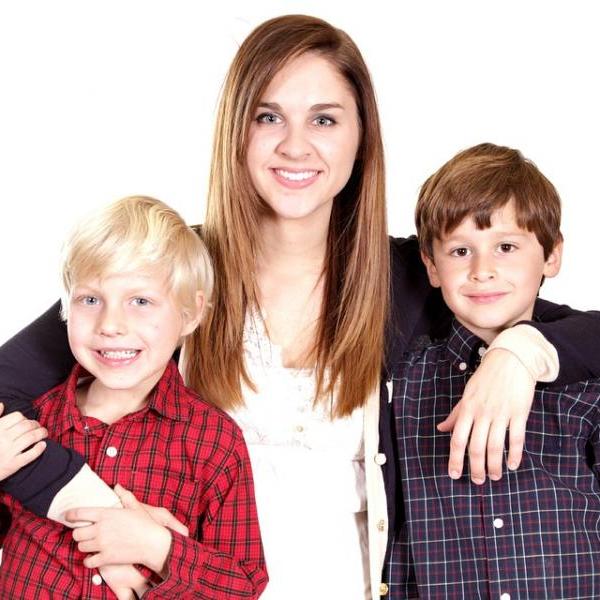Blog
Divorce Considerations with Children

It's easy to get wrapped up in all the complicated details of divorce once it begins. Many conversations regarding financial arrangements, sorting assets, and other particulars are sure to ensue. But when children are involved, there is absolutely nothing more important to consider than their well-being. Children of any age can be negatively affected by divorce – sometimes for a lifetime – so a few critical points on going through a divorce with children should be considered.
Collaborate with a child specialist or psychologist. Telling your children that you and your spouse are getting a divorce may be one of the most painful things you ever do – for both you and your children. Before you tell them, you should contact a child specialist or a psychologist.
Essentially, the role of a child specialist is to reduce the harmful effects of divorce on your children. A professional will teach you when and how to share the sad news in the least damaging way possible, how to conduct yourselves around them, as well as help you and your ex to manage your problems without involving the children. He or she will also be able to make recommendations on how to divide your time fairly between both households.
Preserve the Relationship with the Other Parent. You and your ex-spouse will continue to share the responsibility of raising your kids from separate households until all your kids have turned at least 18 years old. Regardless of how you feel about your ex, unless the other parent is abusive or a danger, your children need to have a relationship with both of their parents. Help foster a healthy relationship by focusing on the following tips:
- No bad-mouthing the other parent or dragging them into the gory details of the divorce. This is confusing and unfair to your kids.
- Don’t make them choose between you. That’s unfair, as well as unnecessary. Children are more than capable of loving and having a special and unique relationship with both parents.
- Avoid arguing in front of them.
- Support the other parent’s decisions and parenting style.
- Make sure they have adequate time with each parent.
- Remind them constantly that both parents love and will always be there for them.
It’s also worth noting that the more cooperative parent will have an edge in custody disputes. The parent who is obviously trying to alienate a child from the other parent will learn the hard way that the court does not approve of that kind of interference.
Let them talk about their feelings. Just like parents, many kids will grieve the loss of the family they thought they’d have forever. They’ll miss having both parents present at the same time, and may even wish for you to reunite. Reassure them that whatever feelings they’re experiencing are perfectly acceptable.
Not all kids will react right away. If that’s the case with your children, let them know they can talk when they're ready. If they are hesitant to speak with you, seek out a professional so they know what to do with their feelings. Divorce is a confusing time for children, and it never hurts to have a therapist help sort their emotions out.
Divorce with kids can be an emotionally rocky time - regardless of how amicable it has been between you and your ex-partner. Keeping your primary focus on their well-being will help them transition into their new family arrangement as smoothly as possible.
Contact us for questions you may have.
Be sure to check out our commonly asked divorce questions download below:
About the Author: Elizabeth L. Spadafore
Elizabeth was raised in Meadville, PA and was a local small business owner before attending Duquesne University School of Law, where she received her Juris Doctorate degree in 2010. She focuses her practice on family law matters such as divorce, custody and support. Her background as former County Solicitor for Crawford County Children and Youth services, combined with her experience in bankruptcy actions and personal injury actions, allows her to successfully navigate matters that are both highly sensitive and legally complex.
This content is provided for general informational purposes only, and may not reflect the current law in your jurisdiction. No information contained in this post should be construed as legal advice, nor is it intended to be a substitute for legal counsel on any subject matter. No reader of this post should act or refrain from acting on the basis of any information included in, or accessible through, this Post without seeking the appropriate legal or other professional advice on the particular facts and circumstances at issue from a lawyer licensed in the recipient’s state, country or other appropriate licensing jurisdiction.
Tags
Archive
- September 2025 (2)
- March 2025 (4)
- February 2025 (4)
- December 2024 (4)
- November 2024 (4)
- April 2023 (4)
- March 2023 (5)
- January 2023 (3)
- December 2022 (3)
- January 2021 (3)
- April 2020 (2)
- March 2020 (3)
- January 2020 (5)
- December 2019 (1)
- November 2019 (4)
- October 2019 (4)
- September 2019 (2)
- August 2019 (5)
- July 2019 (3)
- June 2019 (3)
- May 2019 (6)
- April 2019 (5)
- November 2018 (3)
- October 2018 (21)
- September 2018 (20)
- August 2018 (18)
- July 2018 (3)
- January 2018 (7)
- May 2014 (3)

